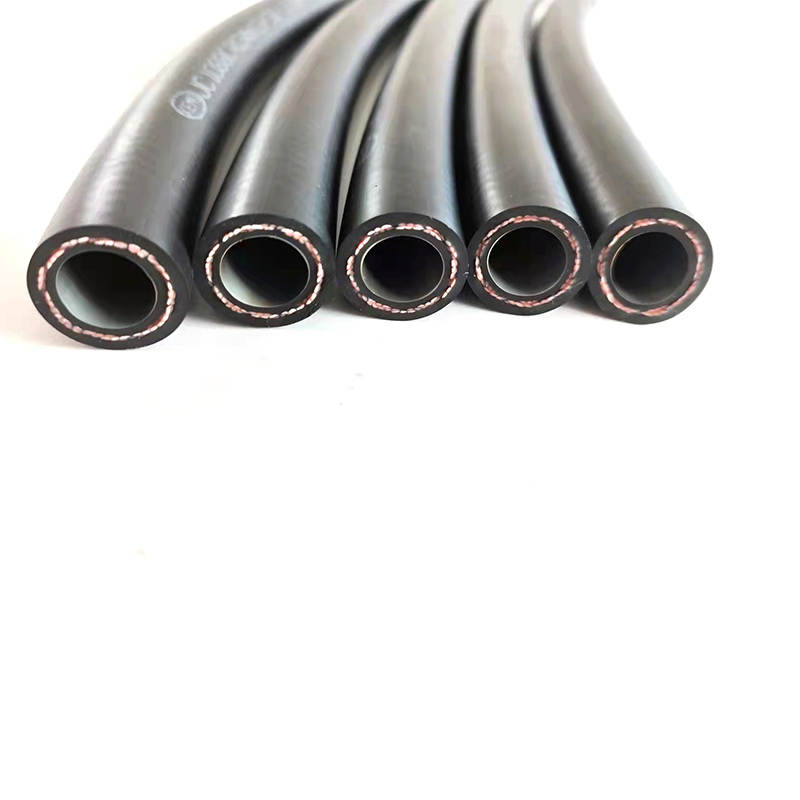Automotive Air Conditioning Rigid Line Solutions for Optimal Performance and Reliability
Dec . 20, 2024 02:00 Back to list
Automotive Air Conditioning Rigid Line Solutions for Optimal Performance and Reliability
Understanding Automotive AC Hard Lines Function, Importance, and Maintenance
The automotive air conditioning (AC) system plays a crucial role in ensuring passenger comfort, particularly in regions with extreme weather conditions. One of the key components of this system is the hard lines, which are essential for the efficient and effective operation of the AC. Understanding automotive AC hard lines, their function, importance, and maintenance can help vehicle owners ensure their AC systems are working optimally.
What Are AC Hard Lines?
In automotive air conditioning systems, hard lines refer to the rigid metal tubes that carry refrigerant between various components of the AC system. These components include the compressor, condenser, evaporator, and accumulator. Made typically from aluminum or steel, hard lines are designed to withstand the high pressure and temperature changes that occur within an AC system, providing a reliable pathway for refrigerant to flow.
Hard lines differ from soft lines (or hoses), which are flexible tubing parts usually made from rubber or reinforced materials. While soft lines are easier to route and install because of their flexibility, hard lines are essential in maintaining structural integrity during operation, especially in high-pressure environments.
The Function of AC Hard Lines
The primary function of automotive AC hard lines is to transport refrigerant throughout the AC system. They are critical for both the low-pressure and high-pressure sides of the AC system. On the high-pressure side, refrigerant gas flows from the compressor to the condenser, where it is condensed into a liquid. This liquid is then transferred to the expansion device through hard lines.
On the low-pressure side, the refrigerant returns from the evaporator as a low-pressure gas to the compressor. In each cycle, hard lines facilitate the movement of refrigerant, ensuring efficient heat exchange, which is achieved through the essential processes of condensation and evaporation.
Importance of AC Hard Lines
The integrity of hard lines is vital for the optimal functioning of the automotive AC system. Any damage or leaks in these lines can lead to refrigerant loss, resulting in decreased cooling performance and increased pressure within the AC system. This can cause the compressor to work harder, potentially leading to premature failure and costly repairs.
automotive ac hard lines

Moreover, the use of durable materials ensures that hard lines can withstand environmental factors such as vibration, corrosion, and temperature variations. By using corrosion-resistant metals and ensuring proper installation and routing, manufacturers help to extend the lifespan and performance of these lines.
Maintenance and Care of AC Hard Lines
Proper maintenance of AC hard lines is essential to prevent issues that could compromise the AC system. Here are some tips for ensuring the longevity and reliability of automotive AC hard lines
1. Regular Inspections Periodically check hard lines for any signs of wear, corrosion, or damage. Look for cracks or signs of rust that could indicate leaks.
2. Keep Connections Tight Ensure that all fittings and connections are secure. Loose connections can lead to refrigerant leaks, impacting performance.
3. Avoid Physical Damage Be cautious when working around the AC system to prevent accidental damage to hard lines. Avoid placing tools or other objects near these lines that could cause dents or breaks.
4. Professional Servicing Schedule regular servicing of the AC system with a qualified technician. They can perform thorough checks of the entire system, including the hard lines, and identify any potential issues before they escalate.
5. Use Quality Replacement Parts If a hard line needs replacement, ensure that the new part is of high quality and compatible with your vehicle's make and model. Using substandard parts can lead to future reliability issues.
Conclusion
Automotive AC hard lines are a fundamental part of vehicle air conditioning systems. Understanding their role and importance can help vehicle owners take better care of their AC systems. Regular maintenance and inspection of hard lines can prevent costly repairs, ensuring your car’s air conditioning remains effective for years to come. By prioritizing the health of these components, you can enjoy a comfortable driving experience, regardless of the weather outside.
